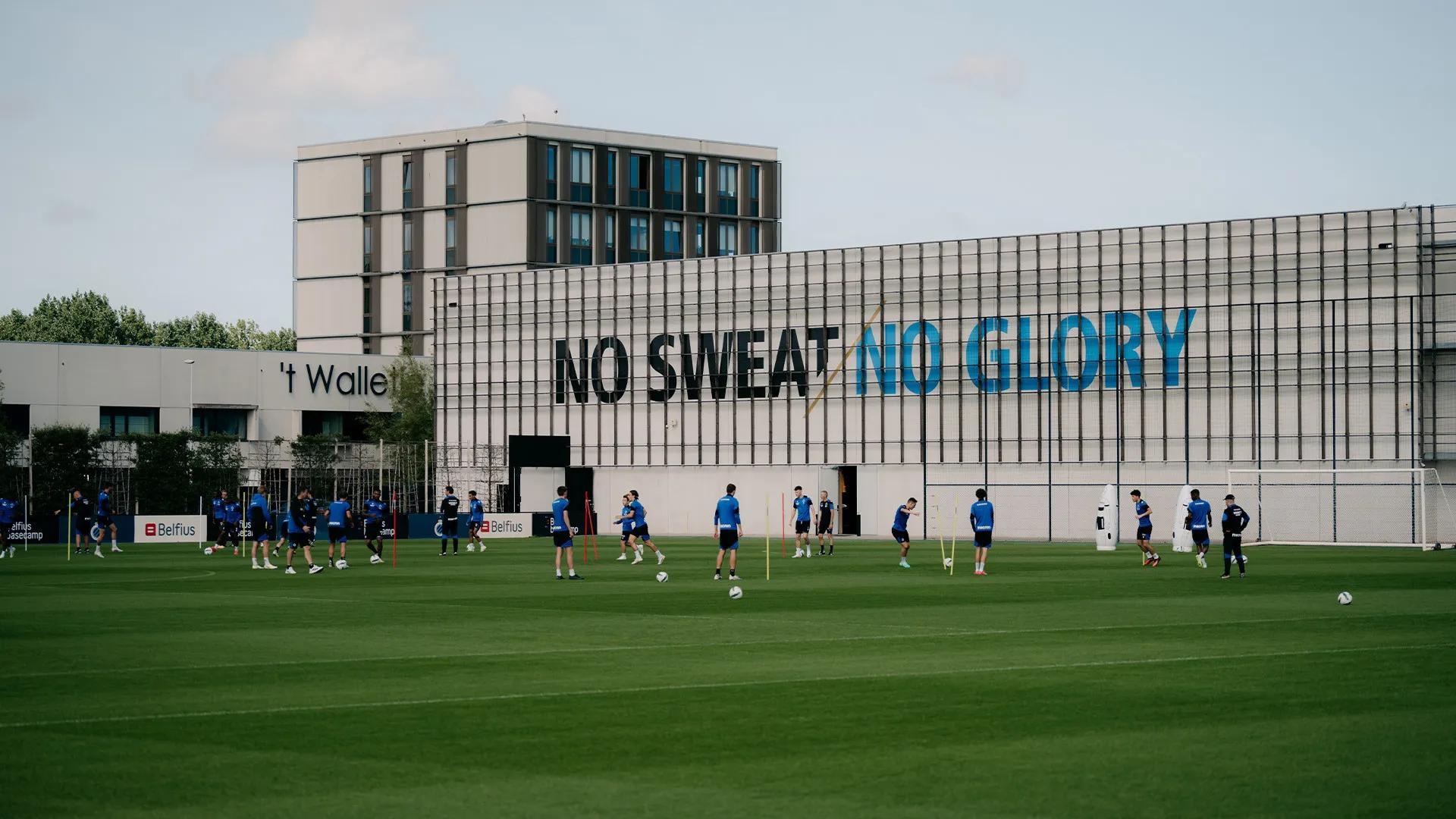In the new episode of The Leadership Edge series, hosted by Martin Preston and featuring Callum Arthur, the two experts explore the critical topic of Cultivating High-Performance Habits in leadership, particularly within the sports industry. This discussion provides valuable lessons for anyone looking to excel in high-performance leadership or advance their career in sports. Drawing from their vast experience, Callum and Martin emphasize how leaders can thrive under pressure while fostering a culture of resilience and engagement within their teams.
The Complexity of Leadership and the Power of Reflection
Leadership is a complex and challenging concept, often discussed yet difficult to define. Callum begins by highlighting that true leadership goes beyond titles or positions of authority. Instead, it’s rooted in personal experience. The key to understanding leadership is reflecting on our own encounters with great leaders and unpacking what made them effective.
When reflecting, Callum advises considering a few essential questions:
- What did these leaders do that made them stand out?
- What characteristics or behaviors did they exhibit?
- How did they make you feel?
- Was their leadership consistent, or did it ebb and flow?
By examining these elements, leaders can translate personal experiences into actionable insights, forming the foundation for their leadership development. It’s crucial to understand that different leaders are effective in different ways for different people and contexts. What works for one person may not work for another. This underscores the importance of adapting one’s leadership style to the unique needs of the team.
Sustaining High Performance Under Pressure
The best leaders maintain high performance and engagement even in the most demanding environments. According to Callum, this often requires a delicate balance between pushing oneself and caring for the team. Leaders need to be strategic about when to give their all and when to prioritize self-care to avoid burnout. Knowing oneself and one’s personal needs is key to maintaining this balance. Vulnerability, openness, and a willingness to ask for feedback from the team are crucial.
Callum emphasizes the importance of developing the ability to “rest well.” Effective recovery is just as important as high performance. Without it, leaders can burn out, which can have a detrimental impact on the entire organization. Leaders who master the balance between exertion and recovery not only perform at their best but also model healthy habits for their teams, helping to sustain high performance over the long term.
Tailoring Leadership to Individual Needs
Effective leadership is not one-size-fits-all. Great leaders recognize that people have different needs, values, and preferences when it comes to how they want to be led. Instead of making assumptions, Callum suggests that leaders ask their team members directly:
- What do you like about how I lead?
- What do you wish I would do differently?
This open, vulnerable approach builds trust and ensures that leadership aligns with the team’s needs. Adapting leadership style to the individual is vital for maintaining high performance and engagement over time. When leaders are willing to adjust their approach, they create an environment where each team member can thrive.
Developing Resilience and Self-Awareness
Resilience and self-awareness are two of the most critical qualities of a successful leader. Callum explains that the most effective leaders maintain their composure and effectiveness even under immense pressure. This often involves a high degree of self-awareness, strategic self-care, and the ability to create “space” around themselves—whether through reflection, meditation, or simply stepping back from the immediate pressures of work.
Comparing oneself to others is a common trap, but it can be harmful. Instead, leaders should focus on understanding their own needs, rhythms, and limits. Developing the ability to “rest well” and recover is just as important as the ability to push hard and perform at a high level. Leaders who know when to take a step back are better equipped to sustain excellence over the long term.
Emotional Awareness and Self-Management for Leaders
Many leaders struggle with issues like sleep deprivation and the pressures of leadership. Feeling “wound up” about these challenges can exacerbate the problems, particularly in high-pressure environments. Callum points out that leaders often fall into the “comparison trap,” measuring themselves against how other successful leaders operate. This can lead to frustration and stress.
It’s important for leaders to own their emotions and acknowledge when they’re feeling nervous or under pressure. While it’s essential to maintain professionalism, Callum emphasizes that expressing vulnerability, in moderation, can humanize leaders and foster a deeper connection with their teams. Leaders also need to be aware of the conditions that allow them to perform at their best, such as morning routines, reflection time, or other personal practices, and intentionally build these into their daily habits.
Emotional Regulation Techniques
In high-pressure situations, managing emotions effectively can make or break a leader’s performance. Callum recommends identifying one’s “optimal functioning zone” or ideal state for specific tasks. Techniques such as controlled breathing, self-talk, and heart rate monitoring can help regulate anxiety and emotions, allowing leaders to maintain their composure and effectiveness even when the stakes are high.
These emotional regulation skills aren’t just for athletes; they are equally important for leaders in any high-stakes environment. Learning and practicing these techniques, often with the help of a sports psychologist or performance coach, can enhance a leader’s ability to navigate challenging situations.
Emotional Contagion and Role Modeling
Leaders should be aware that their emotional states are contagious. If a leader is anxious, stressed, or frazzled, those emotions will likely spread throughout the team. Conversely, a calm, composed leader can create a stable, focused environment. Callum emphasizes the importance of being mindful of how leaders project themselves, especially in high-pressure moments.
Delegation is also key to managing emotional contagion. Leaders who delegate effectively create space for themselves to remain calm and composed, focusing on the bigger picture rather than getting bogged down in operational details. This, in turn, empowers the team and enhances overall performance.
Challenges of Delegation
Delegating effectively is one of the most challenging yet crucial leadership skills. Many leaders struggle with it due to a desire for control, high personal standards, or the belief that they can do things better themselves. However, Callum points out that delegation requires courage and trust. Leaders must be willing to let go of control and allow themselves to be judged based on someone else’s performance.
While this can be difficult, it is essential for leaders to focus on the bigger picture and create an environment where others can grow and succeed. Delegating not only frees up the leader’s time but also develops the team’s capabilities and fosters a culture of trust and accountability.
Empowerment and Trust
Empowering and trusting others can be a challenging aspect of leadership, especially when the leader is no longer directly responsible for the outcome. Callum outlines three things that great leaders do well:
- They provide a clear vision and a sense of belonging.
- They offer strong support and create a safe environment for experimentation and growth.
- They challenge their teams and foster a high-performance culture.
Balancing empowerment with accountability is key. Leaders who excel in this area help their teams grow while maintaining the standards necessary for success.
Balancing the Dance Floor and the Balcony
Callum uses the metaphor of balancing the “dance floor” (hands-on, operational tasks) and the “balcony” (strategic oversight) to describe the dual roles leaders must juggle. Being on the dance floor allows leaders to engage directly with their teams, but it’s equally important to step back and look at the bigger picture from the balcony. This perspective allows leaders to communicate a clear vision, empower others, and reflect on their strategy and approach.
Leaders who master this balance can effectively manage day-to-day operations while maintaining a strategic focus, ultimately leading their teams to greater success.
Effective Delegation Strategies
To delegate effectively, Callum recommends establishing clear contracts and expectations from the outset. Regular check-in points should be scheduled to monitor progress and provide feedback. Leaders must avoid taking work back without proper feedback and evaluation, as this undermines the delegation process.
Discussing the potential benefits of delegation for both the leader and the team member helps to create a shared understanding of the importance of delegation. Exploring potential challenges and providing support where needed ensures that the delegation process is both effective and empowering.
Consequences and Accountability
When delegating, leaders must communicate the consequences of not completing tasks clearly. It is also essential to ensure that the team member has the capability to complete the task. Providing support and guidance, while allowing team members to take ownership and be accountable, creates an environment of trust and accountability.
Managing Risks and Intervening Early
Handing over responsibility doesn’t mean abandoning oversight. Callum emphasizes the importance of skillfully managing situations where things may not be going well. The key is to have set clear expectations upfront, allowing any issues to be identified early. This early intervention can prevent problems from spiraling out of control.
If skill gaps or external factors are causing issues, leaders may need to step back in. However, this should be done with clear communication and a focus on future success.
Coaching and Mentoring Approach
Callum encourages leaders to adopt a coaching and mentoring approach rather than an autocratic style. This involves skillful intervention at the right time, conversations about what can be done differently, and exploring alternative approaches. Leaders who focus on coaching and mentoring foster an environment where their teams can grow, learn, and succeed.
Transitioning from Technical Expertise to Leadership
Being highly skilled in a technical area doesn’t necessarily translate to effective leadership. The skills that make someone excel under pressure, such as laser-like focus and perfectionism, may not be the same skills needed to lead and develop others. Leaders must create environments where others can thrive, which often requires different skills than those that made them successful as individual contributors.
Callum advises leaders to focus on self-awareness, understanding their strengths and weaknesses, and seeking feedback from others as they transition into leadership roles.
The Power of Praise
Providing genuine, meaningful praise is one of the most underutilized yet powerful leadership tools. Praise releases dopamine and other hormones that motivate people and make them feel valued. Despite its effectiveness, many leaders struggle to give praise regularly. Taking the time to acknowledge the positive impact others have had can be a simple yet impactful way to improve team morale and performance.
The Importance of Self-Care and Reflection
Effective leadership, especially in high-pressure situations, requires taking time for self-care and reflection. Leaders must prioritize resting, relaxing, and thinking about their strengths, weaknesses, and areas for improvement. By focusing on their own well-being, leaders are better equipped to support and empower their teams to perform at their best.
Join Our High-Performance Leadership in Sports Program
Elevate your leadership with our High-Performance Leadership in Sports program starting on 14th October. Led by experts like Callum Arthur, this course equips you with the tools to thrive in high-pressure environments, lead effectively, and drive sustained excellence in the sports industry.
Don’t miss this opportunity to transform your career. Sign up now at https://focuseducation.co/high-performance-leadership-in-sports/




